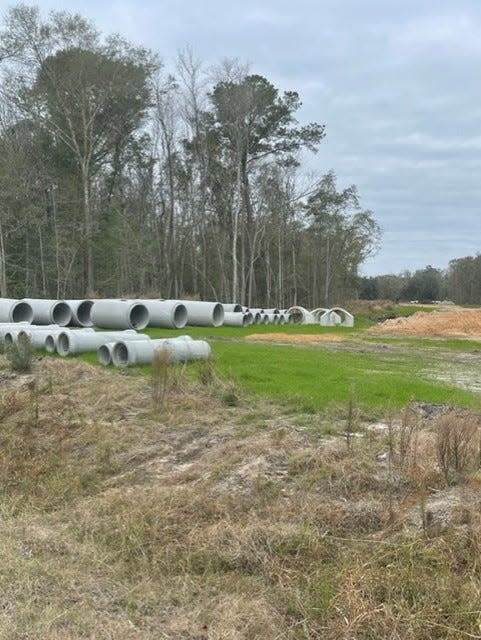Savannah is booming. Council must act fast to impose impact fees on development.
This is the City Talk column by Bill Dawers, a longtime contributor to the Savannah Morning News.
Savannah City Council moved one step closer to implementing an ordinance for the collection of impact fees at the Feb. 7 meeting. A second public hearing, which will presumably be followed by a vote, is scheduled to take place at the Feb. 23 council meeting.
Impact fees are one-time charges to developers to cover the public costs related to new growth. City Manager Jay Melder told council earlier this month that about 50 communities in Georgia have impact fee ordinances and that staff modeled the Savannah version largely on the ordinance in Atlanta.
What is an impact fee?How the fees are collected and what they can be used for
A 'blunt instrument': Developers, city leaders debate pros and cons of impact fees
One comment from Melder during the workshop session might get lost in the final behind-the-scenes wrangling over the ordinance. While advising council members that the ordinance should be approved without being watered down, Melder said that “low-density single-family home developments are the most costly from a public infrastructure perspective.”
Over the two decades that I’ve been writing this column, I’ve been told numerous times by readers that Americans should be allowed to live where they want to live. Yes, people should be allowed to live in new developments that require new roads, new utility infrastructure, new public safety services and new recreation options, but everyone needs to be aware of the costs.
Melder also told council that impact fees are a “blunt instrument.” As a result, the impact fee schedule is based on a variety of broad calculations that prevent nuanced adjustments based on the actual cost of new infrastructure and services.

What are the goals, downsides to impact fees?
A key goal of the state impact fee program, according to Melder, is “to be able to effectively fund and provide essential public infrastructure to rapidly expanding neighborhoods in a manner that does not tax existing communities,” but developers working in established areas will have to pay the same fees as those with projects in expansion areas.
If the ordinance is implemented, denser multi-family construction will incur only slightly lower fees per unit than sprawling single-family developments. The fee per new housing unit will be more than $3,800 regardless of actual sale price or rent. The language of the draft ordinance seems to exempt some multi-family developments of one to three stories, but perhaps that issue will be clarified before a program is adopted.
More City Talk:The wrecking ball is coming for Yamacraw. Focus first on current residents.
Impact fees would be calculated based on different standards depending on the type of development. For example, new lodging would pay fees based on the type of business and number of rooms. New industrial development would be charged by type of business and square footage.
There are significant downsides.
Impact fees will lead to higher construction costs that will be absorbed by developers or passed on to others, disproportionately hurting small businesses, first-time homebuyers and folks who are already struggling to pay rent.
More City Talk: Nimby-ism on Savannah City Council? Members owe explanation on alcohol license votes

What can be expected from Savannah City Council?
Melder emphasized, however, that if council ultimately rejects impact fees, there will be some hard choices ahead about how to pay for critical infrastructure.
I am not going to predict what will happen at the Feb. 24 or another future meeting, but Melder’s comments earlier this month suggested that there might be efforts to water down the proposed ordinance before passage. He recommended that council reject impact fees rather than pass a diluted ordinance.
Melder and city staff have clearly done a thorough job of crafting the proposed ordinance. The mayor and council members should respect that work and follow the city manager’s recommendation to move ahead with implementation.
Contact Dawers via @billdawers on Twitter and CityTalkSavannah@gmail.com.
This article originally appeared on Savannah Morning News: Savannah City Council consider impact fees new development

